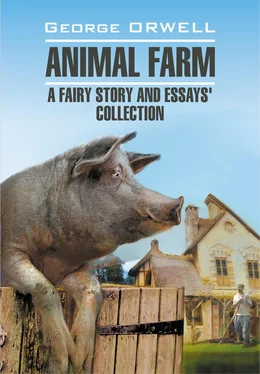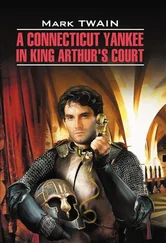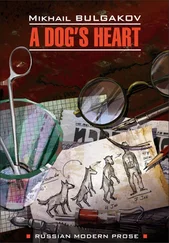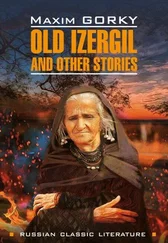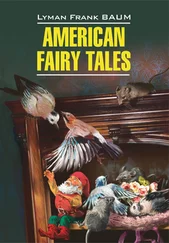‘It didn’t hurt,’ I said proudly.
Flip had heard everything. Instantly her voice came screaming after me:
‘Come here! Come here this instant! What was that you said?’
‘I said it didn’t hurt,’ I faltered out.
‘How dare you say a thing like that? Do you think that is a proper thing to say? Go in and REPORT YOURSELF AGAIN!’
This time Sambo laid on in real earnest. He continued for a length of time that frightened and astonished me – about five minutes, it seemed – ending up by breaking the riding-crop. The bone handle went flying across the room.
‘Look what you’ve made me do!’ he said furiously, holding the broken crop.
I had fallen into a chair, weakly snivelling. I remember that this was the only time throughout my boyhood when a beating actually reduced me to tears, and curiously enough I was not even now crying because of the pain. The second beating had not hurt very much either. Fright and shame seemed to have anaesthetized me. I was crying partly because I felt that this was expected of me, partly from genuine repentance, but partly also because of a deeper grief which is peculiar to childhood and not easy to convey: a sense of desolate loneliness and helplessness, of being locked up not only in a hostile world but in a world of good and evil where the rules were such that it was actually not possible for me to keep them.
I knew the bed-wetting was (a) wicked and (b) outside my control. The second fact I was personally aware of, and the first I did not question. It was possible, therefore, to commit a sin without knowing that you committed it, without wanting to commit it, and without being able to avoid it. Sin was not necessarily something that you did: it might be something that happened to you. I do not want to claim that this idea flashed into my mind as a complete novelty at this very moment, under the blows of Sambo’s cane: I must have had glimpses of it even before I left home, for my early childhood had not been altogether happy. But at any rate this was the great, abiding lesson of my boyhood: that I was in a world where it was not possible for me to be good. And the double beating was a turning-point, for it brought home to me for the first time the harshness of the environment into which I had been flung. Life was more terrible, and I was more wicked, than I had imagined. At any rate, as I sat snivelling on the edge of a chair in Sambo’s study, with not even the self-possession to stand up while he stormed at me, I had a conviction of sin and folly and weakness, such as I do not remember to have felt before.
In general, one’s memories of any period must necessarily weaken as one moves away from it. One is constantly learning new facts, and old ones have to drop out to make way for them. At twenty I could have written the history of my schooldays with an accuracy which would be quite impossible now. But it can also happen that one’s memories grow sharper after a long lapse of time, because one is looking at the past with fresh eyes and can isolate and, as it were, notice facts which previously existed undifferentiated among a mass of others. Here are two things which in a sense I remembered, but which did not strike me as strange or interesting until quite recently. One is that the second beating seemed to me a just and reasonable punishment. To get one beating, and then to get another and far fiercer one on top of it, for being so unwise as to show that the first had not hurt – that was quite natural. The gods are jealous, and when you have good fortune you should conceal it. The other is that I accepted the broken riding-crop as my own crime. I can still recall my feeling as I saw the handle lying on the carpet – the feeling of having done an ill-bred clumsy thing, and ruined an expensive object. I had broken it: so Sambo told me, and so I believed. This acceptance of guilt lay unnoticed in my memory for twenty or thirty years.
So much for the episode of the bed-wetting. But there is one more thing to be remarked. This is that I did not wet my bed again – at least, I did wet it once again, and received another beating, after which the trouble stopped. So perhaps this barbarous remedy does work, though at a heavy price, I have no doubt.
St Cyprian’s was an expensive and snobbish school which was in process of becoming more snobbish, and, I imagine, more expensive. The public school with which it had special connexions was Harrow, but during my time an increasing proportion of the boys went on to Eton. Most of them were the children of rich parents, but on the whole they were the unaristocratic rich, the sort of people who live in huge shrubberied houses in Bournemouth or Richmond, and who have cars and butlers but not country estates. There were a few exotics among them – some South American boys, sons of Argentine beef barons, one or two Russians, and even a Siamese prince, or someone who was described as a prince.
Sambo had two great ambitions. One was to attract titled boys to the school, and the other was to train up pupils to win scholarships at public schools, above all at Eton. He did, towards the end of my time, succeed in getting hold of two boys with real English titles. One of them, I remember, was a wretched drivelling little creature, almost an albino, peering upwards out of weak eyes, with a long nose at the end of which a dewdrop always seemed to be trembling. Sambo always gave these boys their titles when mentioning them to a third person, and for their first few days he actually addressed them to their faces as ‘Lord So-and-so’. Needless to say he found ways of drawing attention to them when any visitor was being shown round the school. Once, I remember, the little fair-haired boy had a choking fit at dinner, and a stream of snot ran out of his nose on to his plate in a way horrible to see. Any lesser person would have been called a dirty little beast and ordered out of the room instantly: but Sambo and Flip laughed it off in a ‘boys will be boys’ spirit.
All the very rich boys were more or less undisguisedly favoured. The school still had a faint suggestion of the Victorian ‘private academy’ with its ‘parlour boarders’, and when I later read about that kind of school in Thackeray I immediately saw the resemblance. The rich boys had milk and biscuits in the middle of the morning, they were given riding lessons once or twice a week, Flip mothered them and called them by their Christian names, and above all they were never caned. Apart from the South Americans, whose parents were safely distant, I doubt whether Sambo ever caned any boy whose father’s income was much above £2,000 a year. But he was sometimes willing to sacrifice financial profit to scholastic prestige. Occasionally, by special arrangement, he would take at greatly reduced fees some boy who seemed likely to win scholarships and thus bring credit on the school. It was on these terms that I was at St Cyprian’s myself: otherwise my parents could not have afforded to send me to so expensive a school.
I did not at first understand that I was being taken at reduced fees; it was only when I was about eleven that Flip and Sambo began throwing the fact in my teeth. For my first two or three years I went through the ordinary educational mill: then, soon after I had started Greek (one started Latin at eight, Greek at ten), I moved into the scholarship class, which was taught, so far as classics went, largely by Sambo himself. Over a period of two or three years the scholarship boys were crammed with learning as cynically as a goose is crammed for Christmas. And with what learning! This business of making a gifted boy’s career depend on a competitive examination, taken when he is only twelve or thirteen is an evil thing at best, but there do appear to be preparatory schools which send scholars to Eton, Winchester, etc. without teaching them to see everything in terms of marks. At St Cyprian’s the whole process was frankly a preparation for a sort of confidence trick. Your job was to learn exactly those things that would give an examiner the impression that you knew more than you did know, and as far as possible to avoid burdening your brain with anything else. Subjects which lacked examination-value, such as geography, were almost completely neglected, mathematics was also neglected if you were a ‘classical’, science was not taught in any form – indeed it was so despised that even an interest in natural history was discouraged – and even the books you were encouraged to read in your spare time were chosen with one eye on the ‘English paper’. Latin and Greek, the main scholarship subjects, were what counted, but even these were deliberately taught in a flashy, unsound way. We never, for example, read right through even a single book of a Greek or Latin author: we merely read short passages which were picked out because they were the kind of thing likely to be set as an ‘unseen translation’. During the last year or so before we went up for our scholarships, most of our time was spent in simply working our way through the scholarship papers of previous years. Sambo had sheaves of these in his possession, from every one of the major public schools. But the greatest outrage of all was the teaching of history.
Читать дальше
Конец ознакомительного отрывка
Купить книгу
